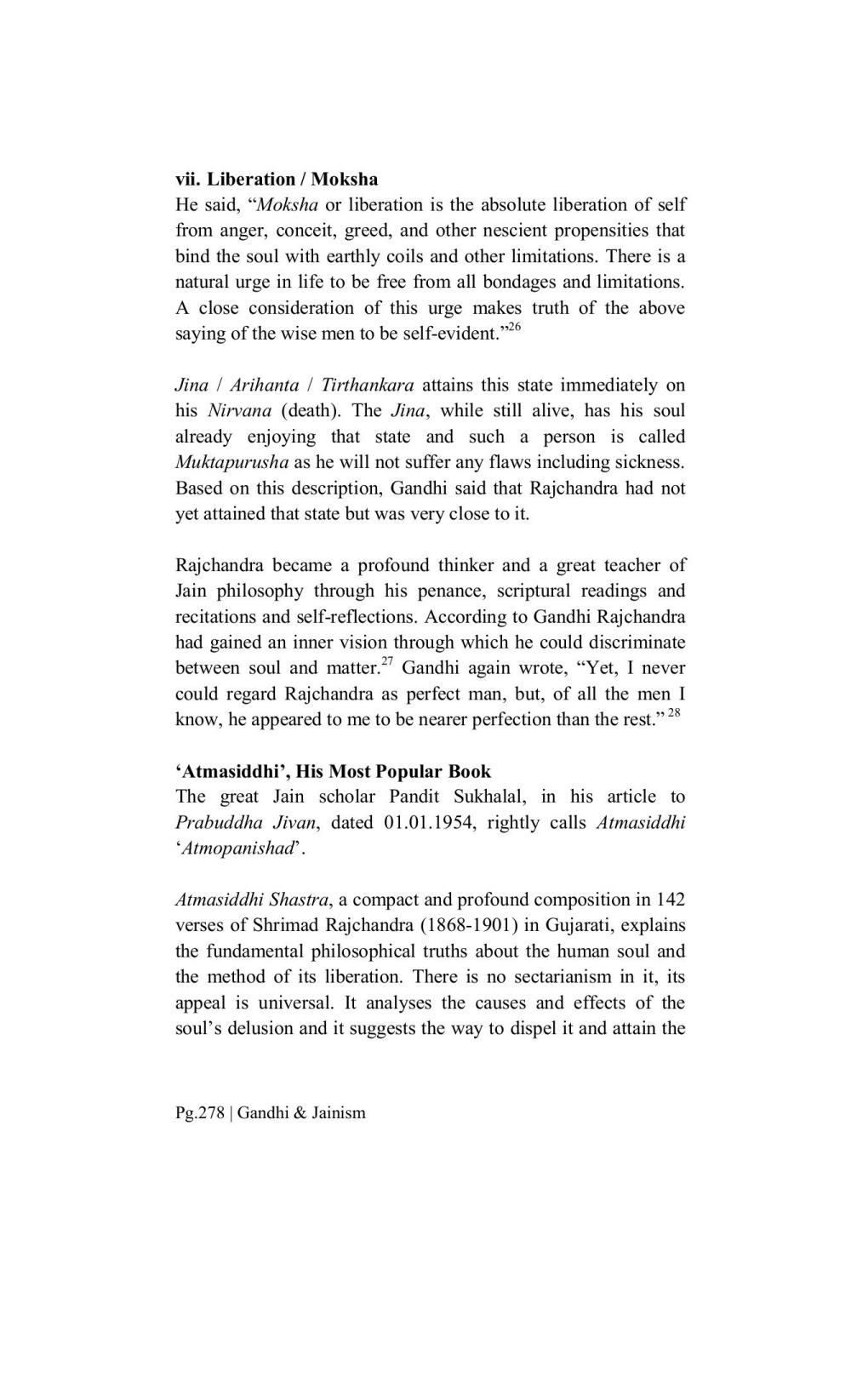________________
vii. Liberation / Moksha He said, "Moksha or liberation is the absolute liberation of self from anger, conceit, greed, and other nescient propensities that bind the soul with earthly coils and other limitations. There is a natural urge in life to be free from all bondages and limitations. A close consideration of this urge makes truth of the above saying of the wise men to be self-evident.":26
Jina Arihanta / Tirthankara attains this state immediately on his Nirvana (death). The Jina, while still alive, has his soul already enjoying that state and such a person is called Muktapurusha as he will not suffer any flaws including sickness. Based on this description, Gandhi said that Rajchandra had not yet attained that state but was very close to it.
Rajchandra became a profound thinker and a great teacher of Jain philosophy through his penance, scriptural readings and recitations and self-reflections. According to Gandhi Rajchandra had gained an inner vision through which he could discriminate between soul and matter. Gandhi again wrote, “Yet, I never could regard Rajchandra as perfect man, but, of all the men I know, he appeared to me to be nearer perfection than the rest." 28
"Atmasiddhi', His Most Popular Book The great Jain scholar Pandit Sukhalal, in his article to Prabuddha Jivan, dated 01.01.1954, rightly calls Atmasiddhi 'Atmopanishad'.
Atmasiddhi Shastra, a compact and profound composition in 142 verses of Shrimad Rajchandra (1868-1901) in Gujarati, explains the fundamental philosophical truths about the human soul and the method of its liberation. There is no sectarianism in it, its appeal is universal. It analyses the causes and effects of the soul's delusion and it suggests the way to dispel it and attain the
Pg.278 Gandhi & Jainism




